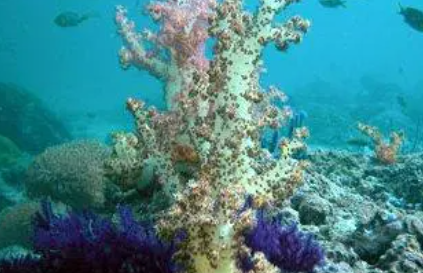Global Biodiversity Declines 73% Since 1970, Urgent Action Needed
The World Wildlife Fund (WWF) released its Living Planet Report 2024 on October 10, revealing a disturbing 73% decline in global wildlife populations since 1970. This sharp drop highlights the severe impact of human activities on the world’s biodiversity and calls for immediate action to prevent further damage.
What is causing the Decline in Biodiversity?
The report looks at nearly 35,000 wildlife populations, covering 5,495 species, such as amphibians, birds, fish, mammals, and reptiles. The key reasons for this decline are:
Habitat degradation: Forests and natural environments are being destroyed or altered, leaving less space for wildlife.
Overuse of resources: Excessive hunting, fishing, and logging deplete animal and plant populations.
Pests and invasive species: Non-native species disrupt ecosystems and harm local wildlife.
Climate change and pollution: Rising temperatures, extreme weather, and pollution are damaging habitats and species.
How Bad is the Decline?
The loss of biodiversity differs across various ecosystems:
- Freshwater species: 85% decline
- Land species: 69% decline
- Marine (ocean) species: 56% decline
Regionally, the most affected areas are:
- Latin America and the Caribbean: 95% decrease
- Africa: 76% decrease
- Asia-Pacific: 60% decrease
- Europe, Central Asia, and North America: Smaller declines, around 35-39%
Ecosystem Damage and Tipping Points
The report warns that if these trends continue, Earth’s natural systems could reach tipping points and critical thresholds where recovery may become impossible. Examples include:
Coral reef bleaching: The loss of coral reefs is harmful to marine life and also affects the livelihoods of millions of people.
Melting polar ice sheets: This contributes to rising sea levels and disrupts wildlife like polar bears.
Seed dispersal in Brazil: The loss of large animals that spread seeds is reducing plant regeneration, showing how everything in an ecosystem is connected.
Threats to Food Security and Health
The report points out that, alongside biodiversity loss, 735 million people around the world are facing hunger. At the same time, obesity rates are increasing due to unhealthy diets. The report also highlights how more than 90% of crop varieties have disappeared, reducing the variety of food we can grow. Overfishing is another big issue, threatening marine ecosystems that are crucial for feeding billions of people.
The Urgent Need for Action
The WWF stresses that urgent action is needed to address these problems. They suggest:
- Tripling renewable energy and doubling energy efficiency by 2030 to combat climate change.
- Supporting Indigenous Peoples in managing the lands they protect, as they are often responsible for preserving much of the world’s remaining biodiversity.
What comes next?
The decisions made over the next five years will be crucial in preventing dangerous tipping points for the planet. The WWF urges governments, businesses, and individuals to increase their efforts to protect biodiversity before it’s too late. Immediate actions will shape the future of Earth’s ecosystems and, ultimately, human survival.
Month: Current Affairs - October, 2024
Category: Environment Current Affairs








